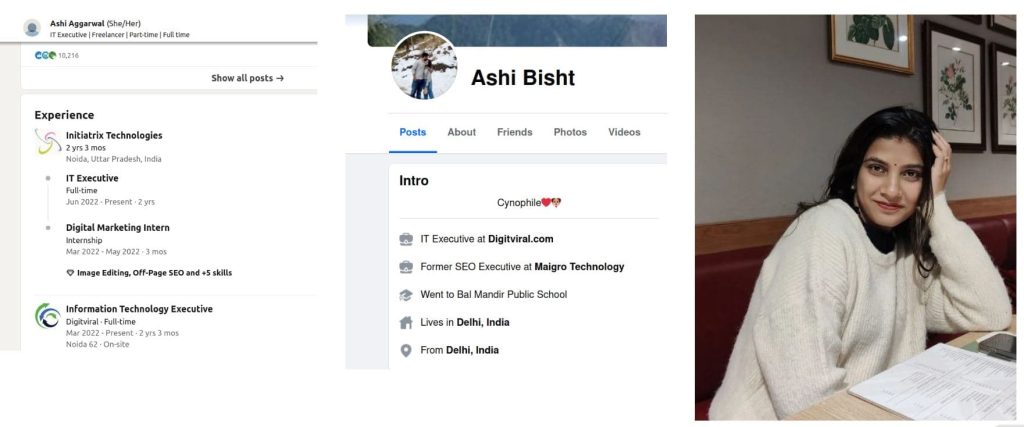[ad_1]
Is critical journalism under attack? A recent exposé reveals a disturbing trend: Companies, in this case, an Indian firm, using fake DMCA notices to silence investigative reports. Learn how “Delete Negative Links” schemes work!
A recent investigation by Swedish cybersecurity organization Qurium Media Foundation uncovers a disturbing trend – the rise of fake DMCA (Digital Millennium Copyright Act) requests to manipulate online content. They dubbed it a “delete negative links industry.”
The Case of Ojo Público:
In April 2024, the Peruvian investigatory newspaper Ojo Publico faced a seemingly ordinary DMCA takedown notice. The notice allows copyright holders to remove infringing content online. However, in this case, it targeted a legitimate investigative report about money laundering by the current mayor of Cajamarca Joaquín Ramírez.
Qurium began investigating Ojo Publico’s article about Ramírez after receiving emails from Alisa Muncy representing Judith Warner, who claimed to be a former special correspondent for Newsweek in Paris.
Muncy complained that the website infouse.exposureco, was the article’s source and that OjoPúblico copied content from fake websites like Exposure.co, Blogger, and Tumblr, mirroring the original reports.
Beyond Muncy’s emails, OjoPúblico identified 13 other copyright complaints filed against them on Google’s Lumen Database, likely linked to the same effort. These complaints aimed to remove the report on Ramírez and another on his cousin Osías Ramírez, both facing money laundering investigations.
Emails from Mrs. Muncy, provided a hint of her location, as they were sent from the time zone GMT +05:30, which corresponds to India.
The same day, someone used the service “hosting-checker.net” to find out where Ojo Publico was hosted. When asked about copyrighted parts of the article, Alissa Muncy responded with a document with metadata revealing it was allegedly created by Ashi Aggarwal. However, no traces of Warner or Muncy were found.
Tracing the Takedown:
Ashi Aggarwal’s social media profile revealed she worked for Initiatrix Technologies in Noida, India registered as Amit Vatsya and owned by two businessmen Jha Piyush and Vipin Kumar. Alissa Muncy also runs a blogspot blog used to run several DMCA take-down requests with Google.
Initiatrix Technologies uses a multi-pronged approach to silence critical content, including fabricating fake websites, employing fake names or stolen identities to submit DMCA requests, and creating “back-dated copies of legitimate websites to claim copyright infringement of the investigative report on the original site,” Qurium’s report read.
Their goal? As per researchers, is to remove investigative articles that could damage their clients’ reputations.
Interestingly, the individual named in the Ojo Público case mysteriously closed all their social media accounts coinciding with Qurium’s report. Ojo Público, armed with Qurium’s findings, is pursuing further investigations. This incident highlights the vulnerability of investigative journalism to manipulation tactics.
Qurium
For your information, Qurium has been quite a vocal and active organization that protects human and media rights. Over the years, the organization has reported several instances of cybercrime, leading to vast government-level investigations.
These include the shutdown of the illegal prostitution ring in Kazakhstan back in September 2019, a deep dive into the DDoS attacks on the human rights watchdog Karapatan in August 2019, the large-scale Chinese scammers’ rings that exploited cloned websites for its global illegal gambling network in November 2023, DDoS attacks on the Philippines media giant Rappler to quiet critics in December 2023, and, most recently, last week’s report exposing the Chinese Vigorish Viper, which has been exploiting DNS and European football club sponsorships for illegal gambling.
RELATED TOPICS
- AI Generated Fake Obituary Websites Target Grieving Users
- Fake Wikipedia Researcher Hacked Bumi Chairman’s Computer
- Texas Adult Site Age Verification Law Sparks 234.8% VPN Surge
- Scam Utilizing AI-Generated Images to Represent Fake Law Firm
- Tuta Mail (Tutanota) Accuses Google of Censoring Its Search Results
[ad_2]
Source link

